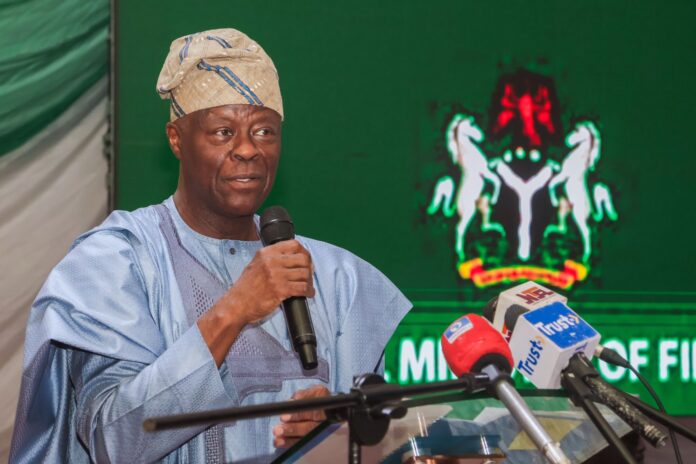Nigeria’s Minister of Finance and Coordinating Minister of the Economy, Wale Edun, has assumed the chairmanship of the Intergovernmental Group of Twenty-Four (G-24), with a promise to focus on five priority areas.
Edun takes over from Argentina’s Minister of Treasury, Luis Caputo, whose tenure strengthened the group’s coordination among developing economies.
The G-24, which comprises emerging markets from Africa, Asia, and Latin America, advocates for the collective interests of developing countries in global economic and financial discussions.
The G-24, formally known as the Intergovernmental Group of Twenty-Four on International Monetary Affairs and Development, comprises developing nations across Africa, Asia, Latin America, and the Caribbean.
Established in 1971 as a chapter of the Group of 77, the G-24 aims to coordinate the positions of developing countries on international monetary and development finance issues, ensuring their interests are represented in global negotiations.
Edun, in a statement shared with member countries, declared that under Nigeria’s Chairmanship, the central theme guiding the organisation’s work will be: “Optimising Resource Development for Inclusive, Job-Rich Economic Transformation.”
“This theme encompasses all forms of resources-human, financial, physical, and natural-that are essential for sustainable economic progress,” he stated.
The Minister outlined five strategic priorities to guide the group’s agenda over the next year, which include:
Reforming the Global Financial Architecture: Nigeria will push for a fairer and more inclusive system that strengthens the global financial safety net, expands concessional financing, advances IMF quota reforms, and supports digital and local currency-based trade.
Enhancing Domestic Resource Mobilization and International Tax Cooperation: The group will deepen engagement on global tax reforms, promote transparency, and address illicit financial flows to create more fiscal space for development.
Mobilizing Innovative Finance for Development: Edun emphasized the need to leverage instruments such as blended finance, green bonds, and sustainability-linked debt swaps to bridge the financing gap for reform-minded economies.
Strengthening Regional Integration and Value-Added Manufacturing: Nigeria aims to promote regional trade, industrialization, and investment in value-added sectors to drive job creation and boost competitiveness across developing economies.
Advancing Climate Finance and Just Energy Transitions: The new chair also pledged to advocate for a balanced global energy transition that accounts for the realities of energy-deficient but resource-rich nations, emphasizing the need for resilient infrastructure and equitable access to climate finance.
Edun’s assumption comes at a time of heightened global economic uncertainty, deepening debt distress, and rapid technological disruption that continues to reshape the world of work.
In his statement, Edun noted that over a quarter of emerging and developing economies have lost access to international capital markets, while more than half of low-income countries are either in or approaching debt distress.
The estimated global financing gap required to achieve the Sustainable Development Goals (SDGs) now stands between $4 trillion and $5 trillion annually, underscoring the pressure on developing nations.
He also highlighted the challenge of job creation in the face of technological disruption, noting that an estimated 1.2 billion young people are expected to enter the global labour force in the next 10 to 15 years, competing for only 400 million available jobs.
This, he said, calls for deliberate investment in human capital, digital infrastructure, and structural transformation to create sustainable and inclusive employment.
Edun pledged to use Nigeria’s chairmanship to amplify the voice of emerging and developing economies in global financial governance and ensure that policy outcomes translate into “real progress for our people.”
He said Nigeria would work closely with member states and development partners such as the IMF and the World Bank to advance reforms that promote resilience, inclusion, and job-rich growth.
Nigeria’s chairmanship of the G-24 was confirmed during the IMF/World Bank Annual Meetings in October with the assumption date set for November 1, 2025.

